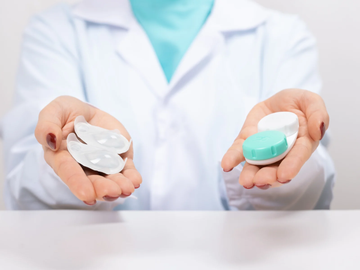
Prescription glasses are essential for daily vision correction, but when it comes to activities like swimming or showering, many people are unsure about the best way to protect their lenses and ensure their vision stays clear. While prescription glasses may be great for everyday tasks, they’re not designed for water exposure. Let’s dive into the risks of wearing prescription glasses in the pool or shower and explore some alternatives.
1. Why Prescription Glasses Aren’t Water-Friendly
Prescription glasses, especially those made with standard materials, are not built to withstand water exposure. The lenses can become damaged, foggy, or scratched when submerged in water. Most prescription lenses are made from materials that can absorb moisture, leading to distorted vision and even permanent damage to the coating.
Water and soap can also strip away anti-reflective coatings or UV coatings, reducing their effectiveness over time. Additionally, glasses frames can warp or lose their shape due to prolonged exposure to water, which could make them uncomfortable or less effective for regular use.
2. The Risks of Wearing Glasses While Swimming
When swimming, the primary concern is not only lens damage but also the safety aspect. Glasses can easily fall off in the water, especially if you’re engaging in vigorous swimming. Since glasses aren’t designed to float, they can sink, potentially causing you to lose them.
Another factor is that your vision is likely to blur when swimming without corrective lenses, particularly if you need glasses to see clearly at a distance. While swimming goggles with prescription lenses are a great option for swimmers, they’re designed specifically to maintain clear vision in the water and stay securely in place.
3. Can You Shower with Prescription Glasses?
The answer is technically yes, but it’s not recommended. Taking a quick shower while wearing glasses won’t necessarily cause immediate damage, but repeated exposure to water, shampoo, soap, and hot steam can harm both the lenses and frames over time. The moisture can cause lenses to fog up or create streaks that are hard to clean, while soap can leave residue that affects your vision.
It’s better to remove your glasses before getting into the shower. If you need to keep your glasses on for any reason, consider wearing a protective case or cleaning your lenses afterward to avoid any damage from soap or shampoo.
4. Alternatives to Wearing Glasses in Water
For those who need vision correction while swimming or showering, there are several alternatives that provide comfort and clarity without the risk of damaging your prescription glasses:
Prescription Swim Goggles: If you love swimming and need clear vision in the water, prescription swim goggles are an excellent choice. These are specifically designed to correct vision while protecting your eyes from chlorine and water exposure.
Contact Lenses: For those who don’t want to deal with the hassle of glasses in the pool or shower, contact lenses are a good option. As long as you follow proper hygiene, contact lenses can help you maintain clear vision without the worry of getting them wet. Be cautious when swimming in open water, though, as contacts can be washed out or exposed to bacteria.
Prescription Sports Glasses: For active individuals, prescription sports glasses are designed to be more durable and impact-resistant. While they are not waterproof, they are often equipped with features like anti-fog coatings that make them suitable for outdoor activities, including some water sports.
5. Taking Care of Your Prescription Glasses
Whether you’re swimming, showering, or simply engaging in everyday activities, proper care is essential to extend the lifespan of your prescription glasses. Here are a few tips for keeping your glasses in top condition:
Clean Regularly: Use a microfiber cloth and lens cleaning solution to wipe away dirt and debris. Avoid using your shirt or rough materials that can scratch the lenses.
Store Properly: Always store your glasses in a protective case when you’re not wearing them. This prevents them from being damaged by accidental falls or impacts.
Avoid Extreme Conditions: Keep your glasses away from extreme temperatures or moisture. Avoid leaving them in hot cars or exposing them to excessive humidity.





